FiSPlat, a primary care tool for liver fibrosis screening
FibroScan Screening Platform (FiSPlat), is a non-invasive way to diagnose early-stage liver cirrhosis, known as liver fibrosis
Liver fibrosis happens when a person’s healthy liver tissue becomes scarred due to inflammation or injury. Fibrosis may reverse if the cause of scarring ceases. But if the cause is ongoing, fibrosis can progress. Fibrosis often progresses silently, going undetected because those at risk are not evaluated.
If effective treatment to control or cure the underlying disease is implemented in early stages, liver fibrosis can regress. Unfortunately, most patients are diagnosed at an advanced stage.[1] When more liver tissue becomes damaged, fibrosis may develop into liver cirrhosis, where scar tissue on the organ prevents it from working properly.
Cirrhosis is a chronic liver condition that is caused by numerous factors. These include too much alcohol consumption, infection from hepatitis C and non-alcoholic fatty liver disease. Complications from the condition are responsible for 1.3 million deaths worldwide every year.[1] They rank as the fourth most common cause of death in Central Europe.[2]
Early detection and intervention would be most effective in primary care, where many at-risk people are being treated for conditions such as obesity or type 2 diabetes. Primary care health professionals, therefore, are well-placed to recognise those at risk.[3] But they lack tools to screen for and detect early-stage liver disease, making cirrhosis one of the most difficult to prevent.
Traditionally liver biopsy has been used to diagnose cirrhosis, but this is an invasive procedure that may lead to complications. Conventional imaging techniques are another option, but these are not that sensitive.
Measuring liver stiffness, a physical parameter which can indicate cirrhosis progression is a non-invasive, low-risk, alternative means of diagnosis. But the technology to measure liver stiffness has not been available in a primary care setting, until now.
Now clinicians can screen at-risk communities
FiSPlat is the result of an EIT Health-supported project. The tool uses transient elastography technology (a combination of ultrasound and low-frequency elastic waves) to non-invasively measure liver stiffness. By using the tool, healthcare professionals can better identify liver disease and make treatment decisions earlier, without the need for biopsy.
The technology consists of a tablet-sized non-invasive device, a reader and a docking station. It is designed to be fast, portable and easy to use, making it suitable for use in primary care. The tool is also cost-effective, as early detection, referral and treatment means less pressure for acute centres.[1]
EIT Health provides access and support
FiSPlat is the result of years of research. It follows another EIT Health-supported project, LiverScreen.
LiverScreen developed a personalised screening programme which used novel technology to identify people with pre-symptomatic, significant chronic liver disease among the general population.
Following the discovery of transient elastography, the consortium of partners involved in LiverScreen wanted to create a device that used the technology in a primary care setting.
In 2021, the FiSPlat device obtained the Medical Device CE mark and is now in its pre-launch phase in UK, Spain, Germany, France and the US.
EIT Health’s support has been central from the beginning. We provided FiSPlat with financial assistance and access to our extensive professional network. This helped with the commercialisation and positioning of the technology at a global level.
EIT Health will be crucial in raising awareness of the liver cirrhosis among patients and encouraging key stakeholders and policy makers to adopt the solution.
External Partners
External Partners include Echosens and ELPA.
References
[1] Moon et al (2019) Contemporary Epidemiology of Chronic Liver Disease and Cirrhosis. Clin Gastroenterol Hepatol. 2020 Nov;18(12):2650-2666. doi: 10.1016/j.cgh.2019.07.060. Epub 2019 Aug 8. Accessed at https://pubmed.ncbi.nlm.nih.gov/31401364/. In November 2021
[2] Gu at al (2021) Trends and the course of liver cirrhosis and its complications in Germany: Nationwide population-based study (2005 to 2018), THE LANCET; Accessed at https://www.thelancet.com/journals/lanepe/article/PIIS2666-7762(21)00226-X/fulltext, In November 2021
[3] Fabrellas et al (2018) “Prevalence of hepatic steatosis as assessed by controlled attenuation parameter (CAP) in subjects with metabolic risk factors in primary care. A population-based study:”
Members
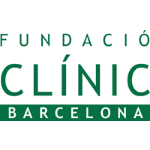
CLC/InnoStars: Spain
Partner classification: Research
Partner type: Linked/Affiliated Party
The Clinic Foundation is a non-profit institution created in May 1989. Its mission is to promote, manage and perform biomedical research and provide teaching in the health sciences field, concentrating particularly on the areas of expertise of the Clinic Hospital of Barcelona and the fields in which the Hospital operates either individually or in partnership with other organisations.
Fundació Privada Clínic per la Recerca Biomèdica
Fundació Privada Clínic per la Recerca Biomèdica, Carrer del Rosselló, 149, 08036 Barcelona, Spain
Key Activities in Business Creation
Technology Transfer, Testing & Validation
Key Activities in Education
Medical faculties, Healthcare professional education/training

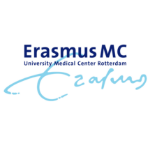
CLC/InnoStars: Belgium-Netherlands
Partner classification: Education, Research, Hospital / University Hospital
Erasmus University Medical Center Rotterdam (Erasmus MC) is the largest university medical center in The Netherlands with around 16,500 employees, and a top referral hospital for a region of about five million inhabitants. A unique infrastructure bringing multidisciplinary research and healthcare together at one location allows Erasmus MC to excel in fundamental research, fast translation of findings into the clinic including first-in-man testing and clinical implementation, and epidemiological studies.
Technical university medical center: Technology is at the core of the new strategy. Erasmus MC focuses on the use of technology and data science to foster innovation in a variety of fields – from medical instruments and devices, minimally invasive surgery, imaging and image analysis, information technology and smart data technology to artificial intelligence, machine learning and biomedical technology.
Erasmus University Medical Centre Rotterdam
Erasmus University Medical Centre Rotterdam, Dr. Molewaterplein 40, 3015 GD Rotterdam, The Netherlands
Key Activities in Research and Developement
Life Sciences, Social sciences / health economics, Clinical research
Key Activities in Social Innovation
Healthcare provision
Key Activities in Business Creation
Technology Transfer
Key Activities in Education
Medical faculties, Healthcare professional education/training

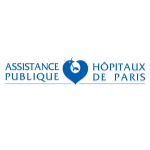
CLC/InnoStars: France
Partner classification: Tech Transfer, Clusters, Other NGOs, Hospital / University Hospital
Partner type: Core Partner
We are a teaching hospital with a European dimension globally recognized. Our 39 hospitals attended each year 8 million sick people: consultation in emergency hospitalizations during scheduled or home hospitalization. We provide a public health service for all, 24/24, and it is for us both a duty and pride.
Assistance Publique - Hôpitaux de Paris
Assistance Publique - Hôpitaux de Paris, 1 Avenue Claude Vellefaux, 75010 Paris, France


CLC/InnoStars: Spain
Partner classification: Business
GENESIS Biomed is a consultancy firm in the biomedical healthcare sector specialized in providing consulting services to spin-off and start-up companies, entrepreneurs and research centers. Based in our expertise we help entrepreneurs and researchers to shape their business plan and we support them in the private fundraising process. We have worked on 253 projects of 15 different types and we have raised more than 67.5 M€ in the last 6 years. Our expertise domains are biopharmaceutical, biotechnological, medical devices, in vitro diagnostic, digital health nutraceutical and cosmetic. With more than 20 years of expertise in the healthcare sector, we are born in May 2017 and we are located in the Barcelona Science Park and in the center of Madrid.
GENESIS Biomed
GENESIS Biomed, Carrer de Baldiri Reixac, 4-12-15, 08028 Barcelona, España

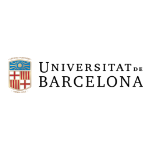
CLC/InnoStars: Spain
Partner classification: Academic, Education, Research
The University of Barcelona is the most intensive university in research in Spain. Our university has a great capacity for innovation in various fields, of which the health sector stands out both due to the amount and the quality of the outcomes produced by faculties such as the Faculty of Medicine and Health Sciences, the Faculty of Pharmacy and Nutrition or the Faculty of Psychology. Our activity within the EIT Health projects is often enriched and sometimes dominated by the technology and/or knowledge created in the Faculties of Biology, Chemistry, Physics, Mathematics and Computer Science or even Fine Arts. We have also several Research Institutes that merge multidisciplinary teams working on topics as diverse as Neuroscience, Complex systems, Biomedicine, etc. as well as a couple of Technology Transfer Institutes such as CREATIO https://www.ub.edu/creatio/en/, the first Academic Center for the Production and Validation of Advanced Therapies in Spain, and Farmatec http://www.ub.edu/sdm/in_index.htm, a Service of Development of Medicines under GMP regulation
University of Barcelona
University of Barcelona, Gran Via de les Corts Catalanes, 585, 08007 Barcelona, España
Key Activities in Research and Developement
https://web.ub.edu/en/research
Key Activities in Corporate Innovation
https://web.ub.edu/en/the-university
Key Activities in Business Creation
https://startub.ub.edu/en/community/incubated-companies/
Key Activities in Education
https://web.ub.edu/en/learn

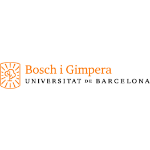
CLC/InnoStars: Spain
Partner classification: Education, Research
Partner type: Linked/Affiliated Party
The Fundació Bosch i Gimpera (FBG) focuses on promoting and managing the transfer of the knowledge and technology generated at the University of Barcelona. Its goal is to bring the scientific and technical skills and the results of the research generated at the UB to the market by means of contracts for R+D+i, consultancy services and the protection, valuation and licensing of patents and the creation of new knowledge-based enterprises.
Fundació Bosch I Gimpera (FBG)
Fundació Bosch I Gimpera (FBG), Carrer de Baldiri Reixac, 4, 08028 Barcelona, Spain
Key Activities in Business Creation
Incubation, Technology Transfer, Business coaching
Key Activities in Education
Entrepreneurship training, Medical faculties, Healthcare professional education/training
